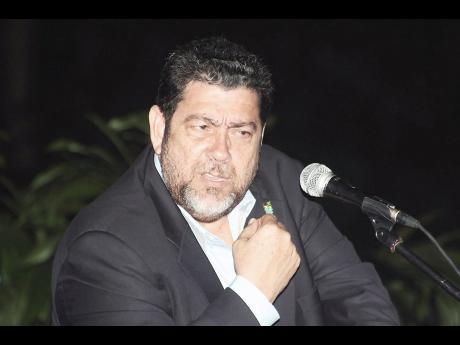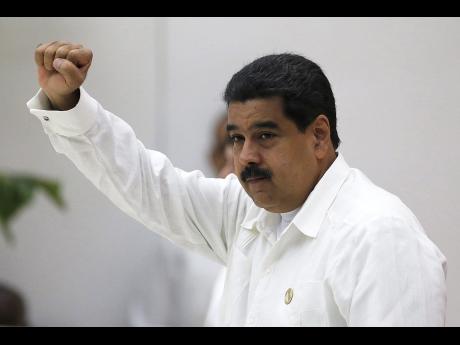CARICOM split over Venezuelan crisis
Discussion over "developments" in Venezuela at the Organization of American States (OAS) is in order, Jamaica's Prime Minister Andrew Holness has said in a letter rejecting the chiding of Vincentian leader Dr Ralph Gonsalves, who has all but accused CARICOM members of betrayal.
The disagreement throws open a hidden internal conflict two months before leaders meet in Grenada.
At least 43 people have reportedly died in the last seven weeks in violence related to antigovernment protests in Venezuela that is battling deepening economic and political turmoil.
The situation has prompted calls for a definitive position from the OAS, a quasi-judicial and a democracy-defending
69-year-old regional body to which Jamaica, St Vincent and the Grenadines and 12 other CARICOM countries have membership.
WEAPON OF DESTRUCTION
Writing in The Gleaner last Tuesday, Gonsalves, one of the region's longest-serving heads of government, said CARICOM countries were falling for a "divide-and-rule tactic" being used by an undisclosed "handful of powerful countries with an agenda of naked interest". That interest, he said, is to "achieve regime change in Venezuela by using the OAS as a weapon of destruction".
According to him, CARICOM countries being invited to meetings involving the bigger countries of the 35-member group should resist on the principle of non-intervention and interference in the internal affairs of states.
But Holness, responding last Thursday to a May 10 letter from Gonsalves that apparently raised similar concerns, said some of Gonsalves' views "do not accord with my own".
Holness added that his perspective on what is going on at the OAS regarding the South American country "is somewhat different".
He said the OAS's authority comes from member states and "is the appropriate forum for deliberations" when member states do not adhere to "the essential elements of democracy such as the separation of powers, periodic, free and fair elections, access to and exercise of power in accordance with the rule of law".
... Dialogue key to resolving Venezuela crisis
Prime Minister Andrew Holness has indicated that Jamaica "has consistently encouraged dialogue among state representatives to resolve the crises facing Venezuela".
For that reason, he sought to make it clear in a letter to Ralph Gonsalves, prime minister of St Vincent and the Grenadines, that Jamaica has attended meetings to which it has been invited "as a means of being able to properly assess the situation so that well-informed decisions can be made.
"There should be no misunderstanding regarding the justification for attendance at these meetings as members try to find a diplomatic and helpful solution to the crisis in Venezuela," Holness said.
COMMUNITY AGREEMENT
The prime minister said he is "certainly mindful" of differing views among CARICOM members, but added that "there are certain positions on which we as a community can agree". Those positions, he said, include not suspending Venezuela from the Organization of American States.
Venezuela, though, has said it will be withdrawing from the group. A foreign ministers' meeting this week concluded that "deeply entrenched positions needed to be softened" to resolve the internal issues.
The general silence from Caribbean leaders may be linked to the fact that 14 of their countries get oil from Venezuela under a preferential payment arrangement. Moral questions have emerged, given the socialist country's dire situation.
Venezuelan President Nicol·s Maduro has blamed the instability in his country on external forces including the United States.
Donald Trump, the US leader, on Thursday described the crisis Venezuela as "a disgrace".



